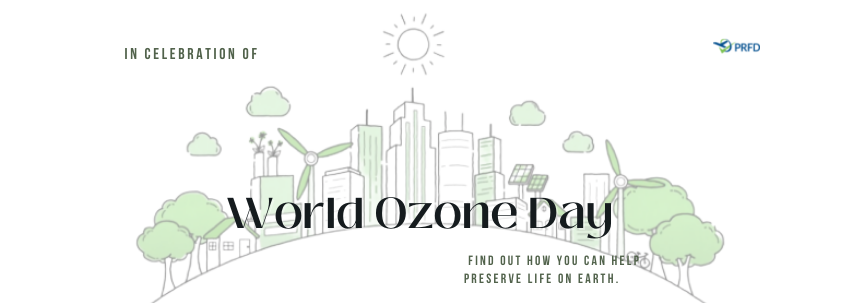Rewind to the spring of 1975, when scientists in Antarctica detected an appalling drop in Ozone concentration in which reached a critical juncture by 1987, urging governments to act fast in trying to reverse this phenomenon. Studies revealed that there are man-made ozone-depleting substances (ODS) hazardous to the ozone layer and thereby leading to its destruction. The ozone’s presence is absolutely necessary to protect life on this planet. It is detrimental that we all work towards taking steps to create a more eco-friendly environment for its sustenance.
As an initiative towards restoring the ozone layer a multilateral environmental agreement (that regulates the production and consumption of almost 100 man-made ODS) was introduced. Thus, the World Ozone Day celebrated on September 16 marks the anniversary of the Montreal Protocol on Substances that Deplete the Ozone Layer.
- Go Local, Go green: Encourage the use of natural, organic and eco-friendly products.
Opt for items that are locally available instead of the products imported from abroad. This includes items such as food and even clothes, the closer to home they are, the better it is for the environment. Consumption of the local produce is not only ideal for the external environment but for the economy as well. Purchasing locally produced items saves transportation costs and cuts down on carbon emissions.
- Use Energy Efficient Appliances
Invest in environment-friendly technologies as they are energy efficient. Before purchasing equipment research and make sure it does not produce ozone-depleting substitutes. Air-conditioning and refrigeration appliances emitting HCFC-22 are extremely harmful to the ozone. Find ones that emit or use HFC-410A and CFC-12 instead. Another easy effort can be using LED light bulbs instead of conventional bulbs. LED bulbs are more efficient and produce less harmful waste.
- Replace your cleaning products with more Eco-Friendly options
Refrain from artificial, chemically-rich cleaning products and opt for the ones that are more natural and eco-friendly. Vinegar is a great option for cleaning purposes as well is natural soap made of olive oil. Try purchasing household and personal aerosol products (paint sprays, insecticides) that use hydrocarbons (propane, butane) as propellants instead of HCFCs or CFCs. This is not only healthier for the earth but for you and your family as well.
- Compost
Get into composting. Do your part in reducing the extent of waste going to landfills everyday. How you may ask? For starters try not to dump your kitchen-waste instead do some research and learn more about how you can compost them and reuse them as fertilizer for example. That way you prevent the build-up of methane gas.
- Reduce, Reuse, Recycle
Avoid using single use plastic. This might seem difficult but restaurants and grocery stores are already working towards reducing their impact on how often these items are used. try purchasing heavy duty bags for groceries that can be used for months if not years. Do not ask for plastic cutlery when ordering food if regular household cutlery is available. Try to invest in reusable straws as plastic straws is extremely harmful to both the ozone layer and marine animals.
If you find the above difficult, start by something as simple as using your own refillable water bottle at work. Stop purchasing single use plastic bottles that are not environmentally friendly, not economically beneficial and above all are more harmful to your health than a reusable glass bottle or cup.
If every one of us takes up the onus of executing the above-mentioned responsibly, only then can we make a significant difference toward creating a sustainable environment. If you already to most of the above, spread awareness to others that are less informed than you. Any small act results in a huge impact.
Together for a better world!

